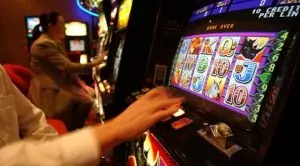 The gambling losses in Tasmania have been subject to a significant increase in 2020/2021 as state authorities imposed some restrictions associated with the Covid-19 pandemic, while the JobSeeker payment was also allocated.
The gambling losses in Tasmania have been subject to a significant increase in 2020/2021 as state authorities imposed some restrictions associated with the Covid-19 pandemic, while the JobSeeker payment was also allocated.
The overall losses on electronic gaming machines (EGMs) and Keno at local clubs and buns surged by almost 50% in comparison to the year before, when the Tasmanian economy suffered the hardest blow of the coronavirus pandemic.
According to figures provided by Tasmanian Liquor and Gaming Commission, the local residents’ losses on club- and pub-based pokies rose from AU$79.5 million in 2019/2020 to AU$117.3 million in 2020/2021. On the other hand, losses on the game of keno increased from AU$25.6 million in 2019/2020 to AU$38.3 million in 2020/2021. The state’s gambling regulatory body also revealed that total losses from both Keno and poker machines rose from AU$105.1 million to AU$155.6 million. However, the gambling watchdog said that was not just a matter of the industry getting back to what was once considered normal.
Reports say that the total losses increased by approximately AU$18 million from the AU$137.3 million registered in the period before the coronavirus pandemic outbreak, 2018/2019.
Customer Losses Rise Despite Lower Number of Interstate and International Visitors during the Coronavirus Pandemic
 The situation is no different when it comes to poker machines at local casinos.
The situation is no different when it comes to poker machines at local casinos.
The customer losses generated while playing poker machines available at casino venues rose from AU$67.3 million from the year before the beginning of the Covid-19 crisis and AU$50.8 million in 2019/2020 to AU$74.7 million in 2020/2021, although the number of interstate and international visitors has been much lower in the past year than before the outbreak of the coronavirus pandemic.
Jenny Cranston, chair of the state’s Liquor and Gaming Commission, revealed that the Tasmanian gambling regulatory body was focused on gambling-related harm minimisation. Ms Cranston explained that recognising tackling gambling-related harm had been an extremely important issue in the period after the gambling venues in the state reopened in June 2020 because of the relaxation of the Covid-19 public health restrictions. She further noted that the gambling watchdog of the state observed high levels of player expenditure on electronic gaming machines that was considerably higher than the EGM expenditure levels from before the pandemic.
As explained by Ms Cranston, the fact that the aforementioned increase continued for many months, has been found particularly concerning. That is why the regulator reminded local licence holders to make sure they are in line with the state’s gambling legislation and implement harm-minimisation measures so that potentially vulnerable people are well-protected at a time when gambling losses have increased.
Gambling in Tasmania accounted for AU$107.6 million in taxes for the state government in 2020/2021, with the figure representing an increase from the gambling tax revenue in the previous periods (2019/2022 and 2018/2019).
The state government got a further AU$2.2 million from gambling licence fees and penalties in the recent year.
- Author


